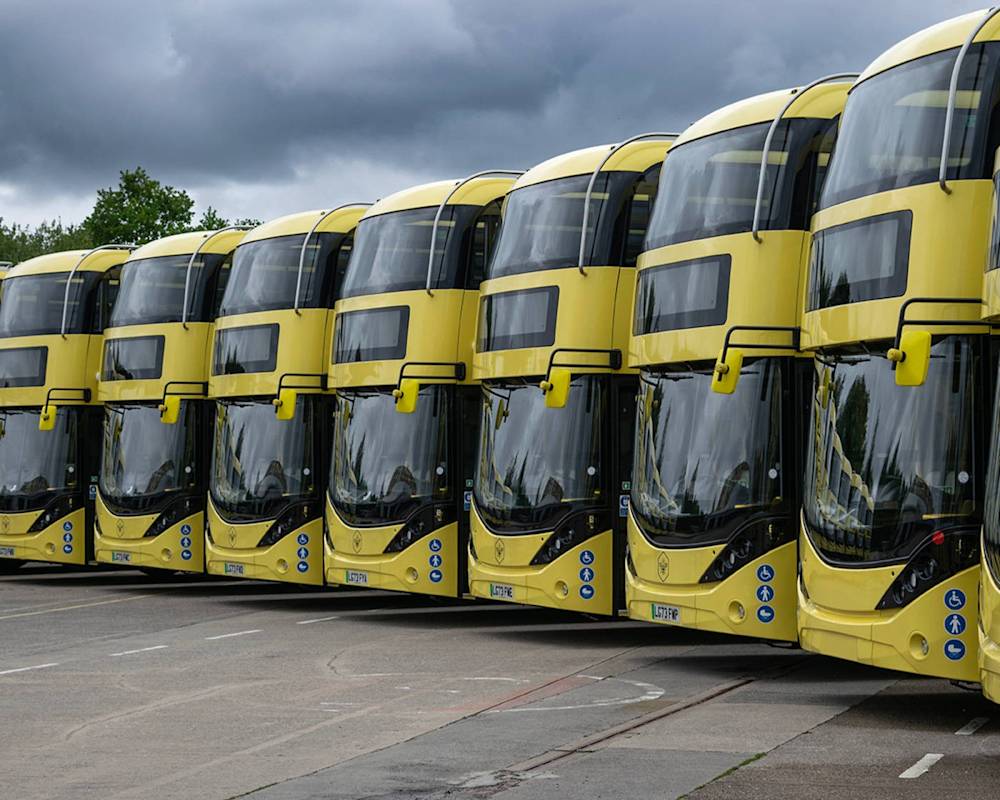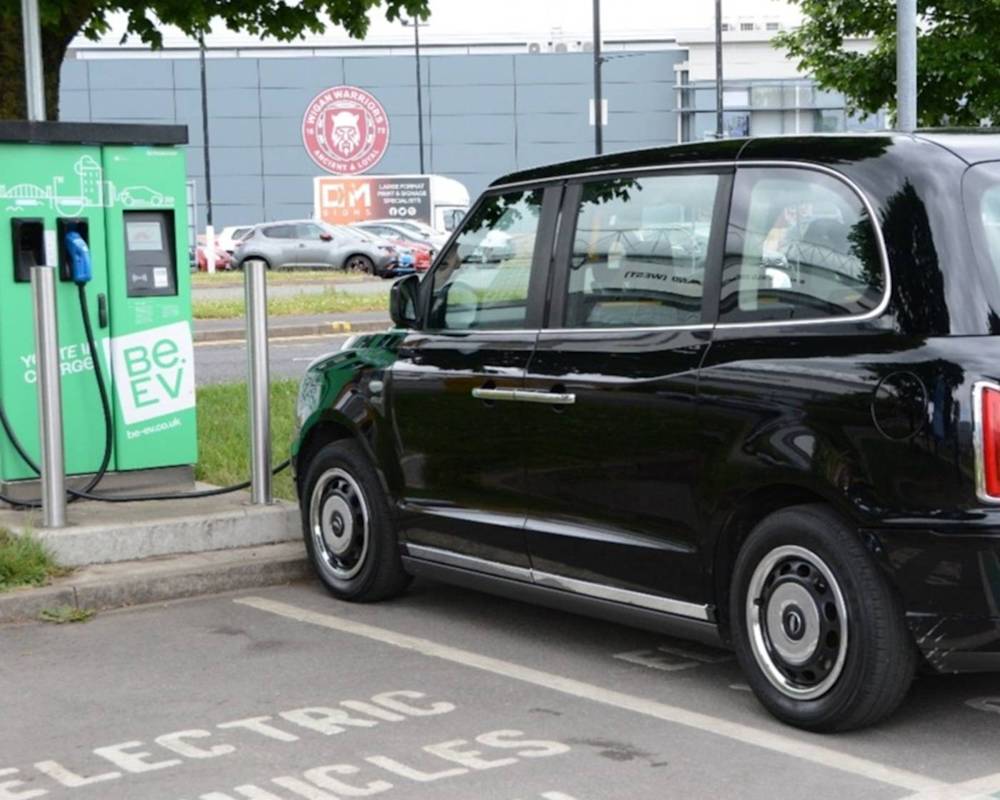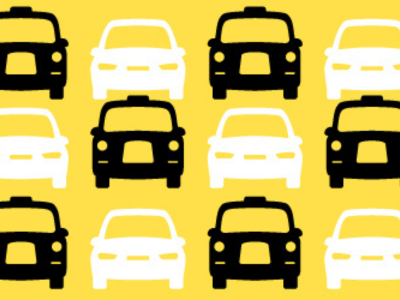Cleaning up our air
Like many areas across the country, Greater Manchester has high levels of air pollution on some local roads.
Poor air quality affects everyone’s health and is linked to many health conditions.
We’re working to make Greater Manchester a cleaner and healthier place to live in, work in and visit.
Through the transformational Bee Network we’re already cleaning up our air through investment in cleaner buses and active travel.
The investment-led Greater Manchester Clean Air Plan will further reduce air pollution on local roads through a multi-million-pound investment in cleaner buses, taxis and targeted traffic measures.
Government has approved the investment-led Clean Air Plan with no Clean Air Zone and no charges to drive on local roads.
Read the latest news release (23 January 2026).
Read the latest report to the GMCA Air Quality Administration Committee (29 January 2026).

The investment-led Clean Air Plan
Greater Manchester is under direction from government to meet legal limits for nitrogen dioxide on local roads in 2026.
Government has approved the investment-led Greater Manchester Clean Air Plan as the best route to cutting this pollution.
More than £19.1 million government Clean Air Plan funding has already been committed to around 1,300 vehicle upgrades, largely for buses and heavy goods vehicles, with a small number of vans, taxi and private hire upgrades.
We are now using further government funding to help to clean up our air:
£51.1 million Clean Bus Fund: To fund 78 Zero-Emission Buses on routes where they are most needed to bring nitrogen dioxide within legal limits, and support bus depot electrification in Manchester and Bolton.
£8 million Hackney Support Fund: To support moving Greater Manchester’s hackney (black cab) fleet to cleaner vehicles.
£3 million local measures: To manage traffic flows in the regional centre (Manchester and Salford) and bring nitrogen dioxide within legal limits on Regent Road and Quay Street.
Greater Manchester will continue to monitor and report on the efficiency of the Clean Air Plan until it meets legal limits for nitrogen dioxide on local roads.
Check back for updates or sign up to our newsletter.
Cleaning up our air through the Bee Network
Greater Manchester is working to create the UK’s first fully joined up, zero-emission public transport network by 2030: the Bee Network.
Since taking back control of local buses through the Bee Network, we have been able to run clean and zero-emission buses on routes where they are most needed to improve air quality.
One in five buses are now electric and three quarters are less than four years old.
20 Zero Emission Buses (Clean Air Plan-funded) are now running from Bolton depot with a further 58 due to come into service on the 8,10, V1 and V2 bus services from May 2026.
Bus depots are being electrified at pace, with all-electric depots at Ashton and Middleton, and upgrades at Bolton, Oldham and Hyde Road depots in Manchester.
New Clean Air Plan-funded chargers have been installed on Piccadilly approach so that more electric buses can run on the free bus service.
A further £2.5 billion government transport funding has also been announced for Greater Manchester, part of which will fund a thousand new buses to form a 100% electric fleet by 2030.
As a result, millions more sustainable journeys are being made on affordable, safe, greener and more reliable services.
Air quality monitoring data shows that this investment in cleaner buses is already helping to improve local air quality.

Upgrading Greater Manchester's taxi fleet
Greater Manchester has now opened the £8 million government-funded Hackney Support Fund.
This is providing grants of up to £12,560 to help the black cab trade to move to cleaner vehicles, linked to local emissions standards.
A new £4.45 million Private Hire Vehicle (PHV) Support Fund is also being proposed to offer PHV owners registered with a Greater Manchester local authority to upgrade to a cleaner vehicle.
The locally funded scheme would offer the choice of a £5,000 interest-free loan or a £1,000 non-repayable grant to support the move to a cleaner, lower-emission vehicle. More information will be available soon.
For more information, please visit the Hackney Support Fund webpage.

Backing our taxis: Local. Licensed. Trusted.
In April 2025, Greater Manchester leaders launched the ‘Backing our taxis: Local. Licensed. Trusted’ campaign – calling on government to support the city region’s taxis and tackle the problem of ‘out of area’ licensing.
As part of this, a review of taxi licensing in Greater Manchester found that the national system needs reforms to benefit the taxi trade, local authorities, and the travelling public.
Over 5,200 licensees, trade bodies, and local authority officers engaged with the review, which found that there is a strong appetite for positive change.
Read the report outlining feedback from the taxi trade and recommendations.

Your questions answered
The Greater Manchester Clean Air Plan is underpinned by local data, air quality modelling (the process of forecasting, understanding and managing future levels of air pollution).
We have worked closely with the government’s Joint Air Quality Unit to help guide us in developing measures that would meet legal limits for nitrogen dioxide on local roads in 2026.
The evidence clearly demonstrated that only the investment-led Clean Air Plan would meet the government’s legal deadline.
Work to develop the investment-led Clean Air Plan has also been informed by targeted engagement and research with key impacted groups.
This included working with vehicle-owning groups (like the taxi trade) and representatives of other impacted individuals, such as community and equality-based groups.
The government-approved investment-led Clean Air Plan does NOT include a charging- Clean Air Zone and there will be no charge for any vehicles to drive anywhere in Greater Manchester.
Greater Manchester’s original proposed Clean Air Plan included plans for a Clean Air Zone, under legal direction from government.
However, following the COVID-19 pandemic, the original Clean Air Plan was no longer the right solution – posing significant financial threats for local people, businesses and jobs.
It would no longer have met the government’s legal direction (issued before the pandemic) to tackle harmful nitrogen dioxide on local roads by 2024.
Government placed Greater Manchester under a new legal direction to meet legal limits for nitrogen dioxide on local roads “in the shortest possible time” and by 2026 at the latest.
In developing the new investment-led Clean Air Plan we compared our investment-led proposals against a ‘benchmark’ Clean Air Zone in the regional centre (the centre of Manchester and bordering areas of Salford).
Our work showed that only the investment-led, non-charging plan would meet the government direction to meet legal limits for nitrogen dioxide by 2026.
Clean Air Zone signs and Automatic Number Plate Recognition (ANPR) cameras were installed for the formerly planned Clean Air Zone and fully funded by government. As Greater Manchester will not now have a Clean Air Zone:
The ten Greater Manchester local authorities have now removed the vast majority of signs on the local road network, with funding from the government’s Joint Air Quality Unit.
National Highways is also removing the signs on the Strategic Road Network, and this is expected to be completed by the end of March 2026.
It’s proposed that Greater Manchester Police (GMP) will now take ownership of the ANPR cameras to and bring them into their existing ANPR network to help tackle serious crime. This follows overwhelming backing for the move during a six-week consultation, with nearly 90% of respondents in favour.
GMP will share ANPR camera data with TfGM to support transport planning and to monitor the efficiency of the Clean Air Plan.
The investment-led Clean Air Plan includes £3m for local traffic measures to manage traffic flow on roads in Manchester and Salford and bring nitrogen dioxide within legal limits on Regent Road and Quay Street. Measures include:
Signal timing adjustments at A57 Regent Road and adjacent parallel routes to improve the flow of traffic, reduce congestion and emissions.
Reducing the speed limit on A57 Regent Road from 40mph to 30mph to improve the flow of traffic, reducing emissions from drivers speeding up and slowing down.
Yellow box enforcement along the A57 Regent Road corridor and the A34 Quay Street to improve the flow of traffic, reduce congestion and emissions.
The latest air quality monitoring data for 2024 shows that air pollution had fallen compared to 2023 and is significantly lower than levels recorded pre-pandemic in 2019.
In 2019, air quality monitoring data showed 129 locations of nitrogen dioxide exceedance. This has now fallen to 38 sites across the city region, down from 64 in 2023.
This gradual improvement in air quality is in part driven by investment in the Bee Network, as well as people upgrading to cleaner vehicles, and through existing Clean Air Plan investments in cleaner vehicles.
You can see all Greater Manchester’s air quality monitoring data on the Clean Air GM Data Hub.
What can I do to help reduce air pollution?
Are you contributing to air pollution? There are plenty of ways we can all help reduce air pollution. The single biggest thing we can all do is drive less, where possible.
See our suggestions for more simple changes you can make to reduce and avoid air pollution.
Changes you can make
Sign up for updates
Keep up to date with the latest Clean Air Plan news.
Transport for Greater Manchester (TfGM) is the Data Controller of personal information provided in this form.


